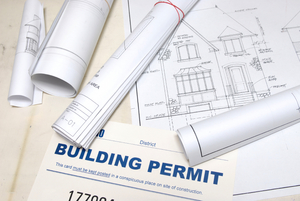Permits: A Little Due Diligence Goes a Long Way
Tuesday, August 5, 2014

When buying a house or condominium in Massachusetts, a home inspector typically does not check the permits on a property. For a more thorough review, it is important for a buyer to verify with the city or town that there are no open permits.
City or town halls will allow the buyer (or buyer’s agent) to review all permits on file.An examination of the property’s “jacket” will contain the record of all permits and detail work performed.Typical items that are contained in the building’s jacket include building/ structural work, home improvement projects, as well as mechanical and electrical work.A review can also confirm that there are no outstanding issues.If there is any work required by an open permit, then the buyer is in a better position to negotiate a concession from the Seller prior to signing the P&S.
When representing a buyer, we add language into the Purchase and Sale Agreement Rider that includes a comprehensive “building permit” clause that there has been a final sign-off and closure by the city or town on all permits. We have the Seller represent that “with respect to any work SELLER has caused to be undertaken at the Premises during Seller’s term of ownership, such work was performed pursuant to building permits, if so required by the [town] with said permit(s) having received final sign-off and closure by the Building Inspector of the of [town] (“Inspector”) and that SELLER has no knowledge of any ‘open’ building permits.”
Additionally, a buyer should check with the fire department to ensure environmental compliance. We include a clause in the Rider which requires the Seller to represent that there are “no underground fuel tanks” and “no hazardous material or oil” on the Premises. If a Seller discloses that an underground oil tank was previously removed, there should be the required removal permits on record with the fire department. If the fire department does not have the requisite removal permits on file, then it is important to consult with an attorney to discuss the next steps.